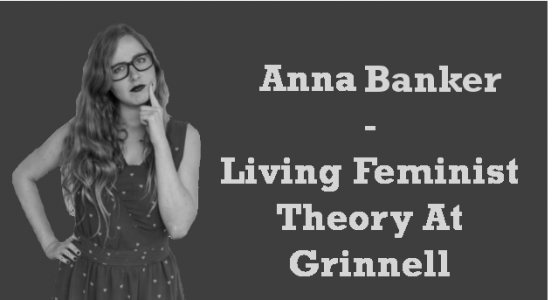A few weeks ago, I had a conversation with a friend about activism on campus. I told her about Harvard University’s most recent graduation, in which students wore red tape on their graduation caps to silently protest the school’s sexual assault policies. She seemed impressed. I said, “What if we did something like this at Grinnell?” She paused for a moment, and then replied, “Yes, that would be great. I totally support you doing that!” I looked confused. She clarified: “Well, that’s your issue. But I definitely think it’s a good idea and I support you working on it.”
Let’s break down this rhetoric, because it surfaces again and again in discussions of activism—both at Grinnell and among young people more broadly. What does it mean for sexual violence to be “my” as opposed to “your” or “our” issue? I think it has to do with identity and experience—namely, that we presume a causal link between identity, experience and politics. For example, I am a woman who has had some level of experience with sexual violence; therefore sexual violence is (the) political issue that will mobilize me. In this formulation, identity and experience are not just truths—they become the very foundation for political movements. Perhaps this is one reason why few people attend feminist events on campus that address sexual violence (such as Take Back the Night): following the logic of identity=experience=politics, actively protesting sexual violence means you must have some direct connection to it. Many students with strong orientations toward social justice, like my friend, may not participate in these protests, but would “support” them from a distance.
This phenomenon is by no means unique, it happens continually, albeit in slightly different iterations. And it’s certainly not specific to Grinnell. In fact, I would suggest that it is a consequence of identity politics being used as the grounds for political struggle. And I’m by no means apart from it: my past political struggles have, admittedly, been related to issues like sexual violence and abortion rights. But I’ve been trying to think more outside myself—beyond the “me and mine” political paradigm, if you will. I encourage other politically-oriented Grinnellians to do the same. How can we build issue-based movements rooted in empathy, rather than identity or experience? How can we think relationally, outside the confines of the self?
The other day I was reading an article about the murder of Mike Brown in Ferguson. The author implored readers to get involved, drawing on a familiar (and largely effective) rhetorical strategy: What if Mike Brown were your son? Your brother? Your cousin? Yet this discourse insidiously reinforces the notion that we should only care about bodies that in some way belong to us. Why can’t we say, Mike Brown isn’t my son, my brother or my cousin, but he is a person? What happened to him affects me because he is a person and his life matters. Whenever someone—anyone—experiences violence, we should all be up in arms.
So I challenge Grinnellians to develop a radical activist politics that pushes the bounds of identity. The group “One Struggle” is a great starting point. I hope that many of us get involved with them to form coalitions based on issues, not identities. Rather than saying, “That’s your issue,” we need to start asking, “What can I do to help?”





























































Diane Lenertz • Sep 26, 2014 at 10:27 am
I agree–I think there’s a lot of fear of either backlash or dismissal that people face when considering involving themselves in radical or dissident politics. So the only people that are moved to action on particular issues are ones that have past personal experience with those particular issues–which leads to this identity politics paradigm you’re talking about. It is something I struggle with personally–my belief that something must change and my simultaneous apprehension to involve myself in anything polarizing. In my opinion, the case at Grinnell has a lot to do with our ivory tower liberal arts complacency, which seems to be really hard to disrupt, especially because we throw around ‘the big issues’ of race, class, gender, inequality, etc. every day and we grow overwhelmed and inactive. I commend you for speaking publicly and determinedly on activism–yours and ours.